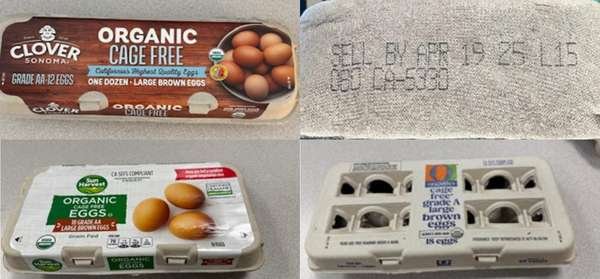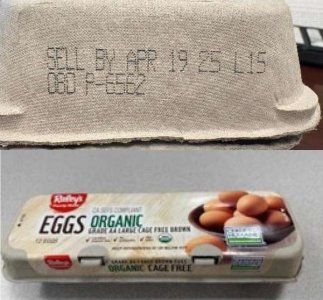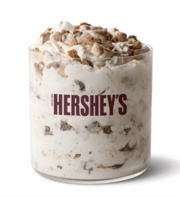Outbreak concerns spark recall of common household grocery item—Are you at risk?
- Replies 0
If you’ve cracked open a carton of eggs lately, you might want to take a closer look before making your next omelet.
A sweeping recall has just been announced, affecting nearly 1.7 million dozen eggs across nine states, after a salmonella outbreak sent dozens to the hospital.
Here at The GrayVine, we know that breakfast is sacred—so let’s make sure it’s also safe.
What’s Going On?
The Centers for Disease Control and Prevention (CDC) and the Food and Drug Administration (FDA) are sounding the alarm after a salmonella outbreak linked to eggs distributed by the August Egg Company.
As of now, at least 79 people have been hospitalized, and the numbers could rise as the investigation continues.
The recall, issued on June 6, covers both brown cage-free and brown certified organic eggs.
These eggs were sold under a variety of popular brand names and at major retailers, including Walmart, across California, Washington, Nevada, Arizona, Wyoming, New Mexico, Nebraska, Indiana, and Illinois.

How to Check If Your Eggs Are Affected
Don’t worry—you don’t need a magnifying glass or a detective’s badge. Here’s what to look for:
Where Were These Eggs Sold?
The recalled eggs made their way into Walmart stores in all nine affected states, with distribution dates from February 3 to May 6 and sell-by dates ranging from March 4 to June 19.
But Walmart wasn’t the only retailer. In California and Nevada, you might have picked up these eggs at:
- Save Mart
- FoodMaxx
- Lucky
- Smart & Final
- Safeway
- Raleys
- Food 4 Less
- Ralphs
Eggs at these stores were distributed from February 3 to May 15, with sell-by dates from March 4 to June 4.

What Should You Do If You Have These Eggs?
First things first: Don’t eat them!
The CDC recommends you either throw the eggs away or return them to the store for a refund. Even if you’re a stickler for not wasting food, this is one time to make an exception.
Next, give your kitchen a little TLC. Wash any surfaces, utensils, or containers that may have come into contact with the eggs using hot, soapy water—or run them through the dishwasher. Salmonella is a tough customer, but a good scrub will send it packing.
What Is Salmonella, and Why Is It So Dangerous?
Salmonella is a type of bacteria that can cause serious illness, especially in older adults, young children, and people with weakened immune systems. Symptoms usually appear 6 hours to 6 days after exposure and can include:
- Diarrhea (sometimes bloody)
- Fever (often over 102°F)
- Stomach cramps
- Nausea and vomiting
Most people recover in a few days, but severe cases can lead to hospitalization or even be life-threatening.
Don’t hesitate to seek medical attention if you or someone in your household experiences the aforementioned.
Read next: Are you eating the riskiest foods in America? Here’s what you need to know—without panicking

Have you ever experienced a food recall? Do you have tips for keeping your kitchen safe, or questions about food safety? Share your stories, questions, and advice in the comments below!
A sweeping recall has just been announced, affecting nearly 1.7 million dozen eggs across nine states, after a salmonella outbreak sent dozens to the hospital.
Here at The GrayVine, we know that breakfast is sacred—so let’s make sure it’s also safe.
What’s Going On?
The Centers for Disease Control and Prevention (CDC) and the Food and Drug Administration (FDA) are sounding the alarm after a salmonella outbreak linked to eggs distributed by the August Egg Company.
As of now, at least 79 people have been hospitalized, and the numbers could rise as the investigation continues.
The recall, issued on June 6, covers both brown cage-free and brown certified organic eggs.
These eggs were sold under a variety of popular brand names and at major retailers, including Walmart, across California, Washington, Nevada, Arizona, Wyoming, New Mexico, Nebraska, Indiana, and Illinois.

Around 1.7 million dozen eggs have been recalled across nine US states after being linked to a salmonella outbreak that hospitalized 79 people. Image source: FDA.
How to Check If Your Eggs Are Affected
Don’t worry—you don’t need a magnifying glass or a detective’s badge. Here’s what to look for:
- Plant Codes: P-6562 or CA5330 (these are printed on the carton)
- Julian Dates: Any number from “32” to “126” (also printed on the carton)
- Brands Involved:
- Clover
- First Street
- Nulaid
- O Organics
- Marketside
- Raleys
- Simple Truth
- Sun Harvest
- Sunnyside
Where Were These Eggs Sold?
The recalled eggs made their way into Walmart stores in all nine affected states, with distribution dates from February 3 to May 6 and sell-by dates ranging from March 4 to June 19.
But Walmart wasn’t the only retailer. In California and Nevada, you might have picked up these eggs at:
- Save Mart
- FoodMaxx
- Lucky
- Smart & Final
- Safeway
- Raleys
- Food 4 Less
- Ralphs
Eggs at these stores were distributed from February 3 to May 15, with sell-by dates from March 4 to June 4.

The recall affects brown cage-free and certified organic eggs from the August Egg Company, sold under various brand names such as O Organics, Simple Truth, and Marketside in major supermarkets including Walmart, Safeway, and Raleys. Image source: FDA.
What Should You Do If You Have These Eggs?
First things first: Don’t eat them!
The CDC recommends you either throw the eggs away or return them to the store for a refund. Even if you’re a stickler for not wasting food, this is one time to make an exception.
Next, give your kitchen a little TLC. Wash any surfaces, utensils, or containers that may have come into contact with the eggs using hot, soapy water—or run them through the dishwasher. Salmonella is a tough customer, but a good scrub will send it packing.
What Is Salmonella, and Why Is It So Dangerous?
Salmonella is a type of bacteria that can cause serious illness, especially in older adults, young children, and people with weakened immune systems. Symptoms usually appear 6 hours to 6 days after exposure and can include:
- Diarrhea (sometimes bloody)
- Fever (often over 102°F)
- Stomach cramps
- Nausea and vomiting
Most people recover in a few days, but severe cases can lead to hospitalization or even be life-threatening.
Don’t hesitate to seek medical attention if you or someone in your household experiences the aforementioned.
Read next: Are you eating the riskiest foods in America? Here’s what you need to know—without panicking
Key Takeaways
- Around 1.7 million dozen eggs have been recalled across nine US states after being linked to a salmonella outbreak that hospitalized 79 people.
- The recall affects brown cage-free and certified organic eggs from the August Egg Company, sold under various brand names such as O Organics, Simple Truth, and Marketside in major supermarkets including Walmart, Safeway, and Raleys.
- The recalled eggs can be identified by plant codes P-6562 or CA5330 and Julian Dates from “32” to “126”, with sell-by dates between March 4 and June 19; shoppers should check their packaging carefully.
- Health authorities advise anyone who purchased the affected eggs to throw them away or return them, clean any surfaces that may have come into contact, and seek medical attention if severe symptoms of salmonella infection occur.
Have you ever experienced a food recall? Do you have tips for keeping your kitchen safe, or questions about food safety? Share your stories, questions, and advice in the comments below!
Last edited:






